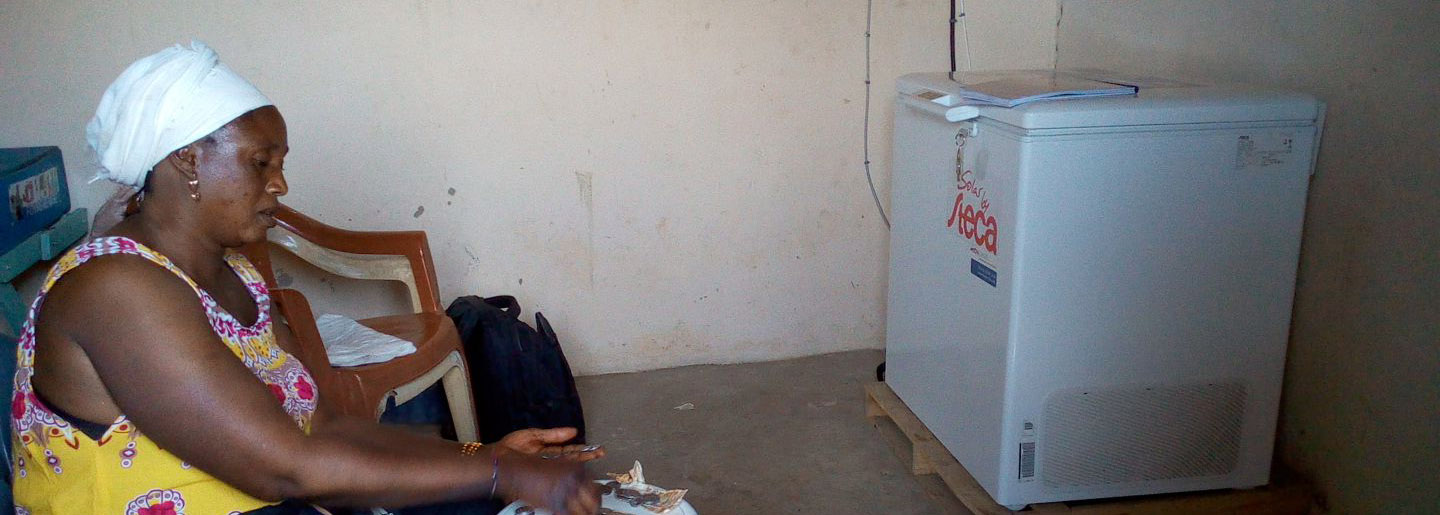Since the lockdown was imposed at the onset of the pandemic in Senegal, Awa has seen her turnover fall from an average of USD 340 per month to between USD 70 and 110 per month. As schools closed down, market activities got suspended and travel restrictions were imposed, Awa’s customers faded away. Her mentor advised Awa to focus on meeting the food needs of the community, as food security was people’s number one concern. She also kept selling frozen products, such as ice, cool drinks and fruit juices from home to a trickle of customers – those who could still afford buying goods other than the bare essential.
In addition, the regulator in her freezer has been playing up: batteries are not charging as efficiently thereby limiting the time she can freeze her products. These technical problems, explained her Energy 4 Impact’s mentor, could be due to the fact that at the beginning of her activity, in order to meet the high demand in the dry season, Awa was charging twice the number of products recommended and pushing the freezer beyond capacity.
However, by diversifying her products, Awa made up for the shortfall in selling frozen ones, when the regulator was malfunctioning. Energy 4 Impact’s mentor also advised her to reinvest her profits in buying raw materials now and storing them. Currently, raw material costs have fallen between October and December. If she buys them now she will be able to beat the inflation expected in February until September 2021.
What’s important is that the profit she made was enough to take care of her family’s needs. She also finished re-paying the credit she took on the freezer well before the pandemic started and ahead of the deadline agreed with her creditor. But given the circumstances, she has to put on hold her plans to expand her business by investing in a second refrigerator.
Now that the authorities have eased some of the restrictions, the demand for Awa’s products has picked up again. “I hope to catch up on lost business and build up the savings I need to repair the regulator” says Awa.
This story was created in collaboration with our partner, Energy 4 Impact.







